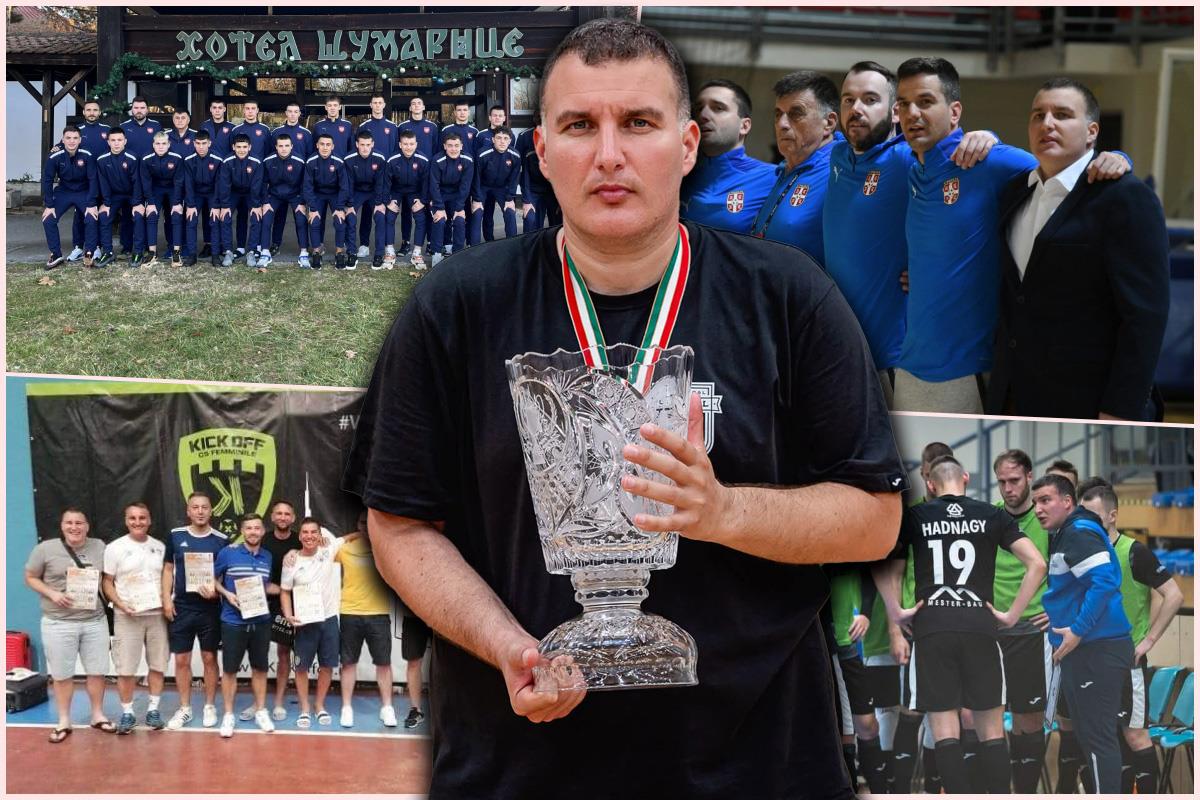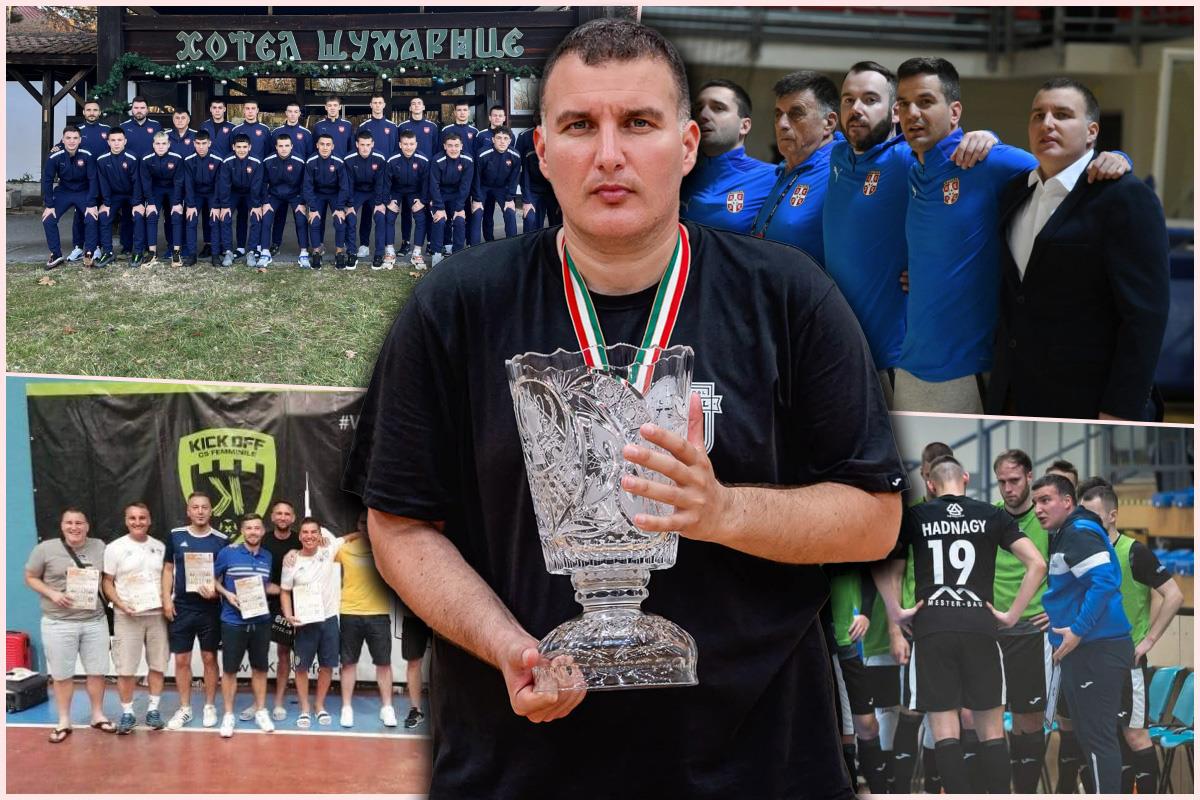Marko Gavrilović: The Fight for Serbian Futsal and a Story of Injustice
Marko Gavrilović, the coach of the Serbian futsal national team, is not just a coach — he is a symbol of struggle, passion, and injustice in the world of Serbian futsal. His story begins as a player of traditional football, but he quickly realizes he lacks the potential to reach the top and turns to studies and futsal, where he finds his true passion.
Playing numerous matches in the second league, Gavrilović faces harsh conditions and lack of money, but love for the sport and a group of the right people around him help the Mašinac club survive and grow. As a coach, he manages to win the double crown in the second league and bring the club to the first league, but problems with financing and injustice in the sport follow him.
His career takes him through various clubs, including Požarevac, Blace, and Novi Pazar, where he achieves significant successes but also experiences injustice from club managements that do not support his work and vision. Despite this, Gavrilović remains dedicated to the development of futsal, especially young players, and believes the key to success is more training sessions and better club organization.
The U19 national team coach points out that Serbian futsal is in crisis due to a lack of work and enthusiasm in clubs but believes the situation will change if everyone starts working and communicating better. He criticizes players who see tournaments only as an additional income source but understands the economic circumstances they face.
Gavrilović’s anecdotes from the field, like when he had to play as a goalkeeper due to a lack of goalkeepers or when a fan’s bicycle was stolen, show how futsal in Serbia is a fight and a life school. His message to young people is clear: choose futsal, work hard, and you will succeed.
In the end, Gavrilović calls for unity and mutual support in the futsal community because only then can this sport progress and get out of the crisis. His story is proof that with love, work, and persistence, any obstacle can be overcome, but also a warning about injustice and neglect threatening to extinguish the potential of Serbian futsal.
If you thought futsal was just a game, think again — this is a story about people fighting for every inch of the field, every goal, and the future of a sport that deserves more attention. So, what do you think? Will Serbian futsal ever get the support it deserves? Write, laugh, rage — let the voice from the stands be heard!




















